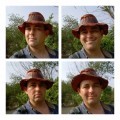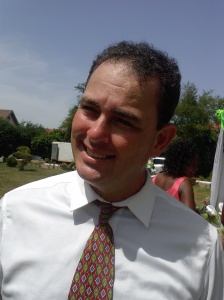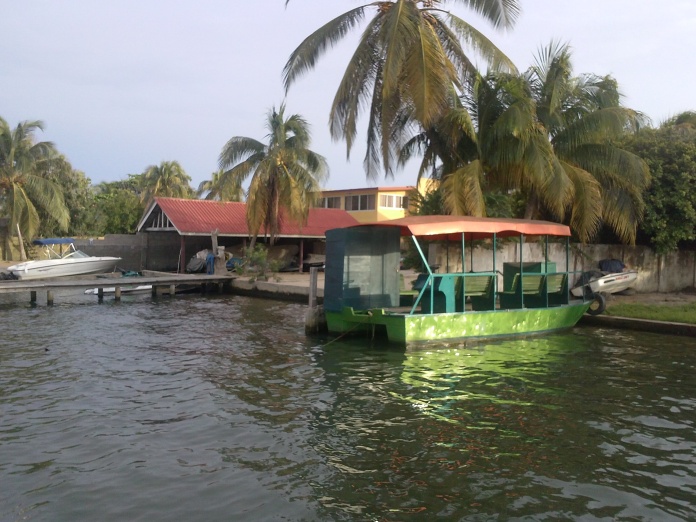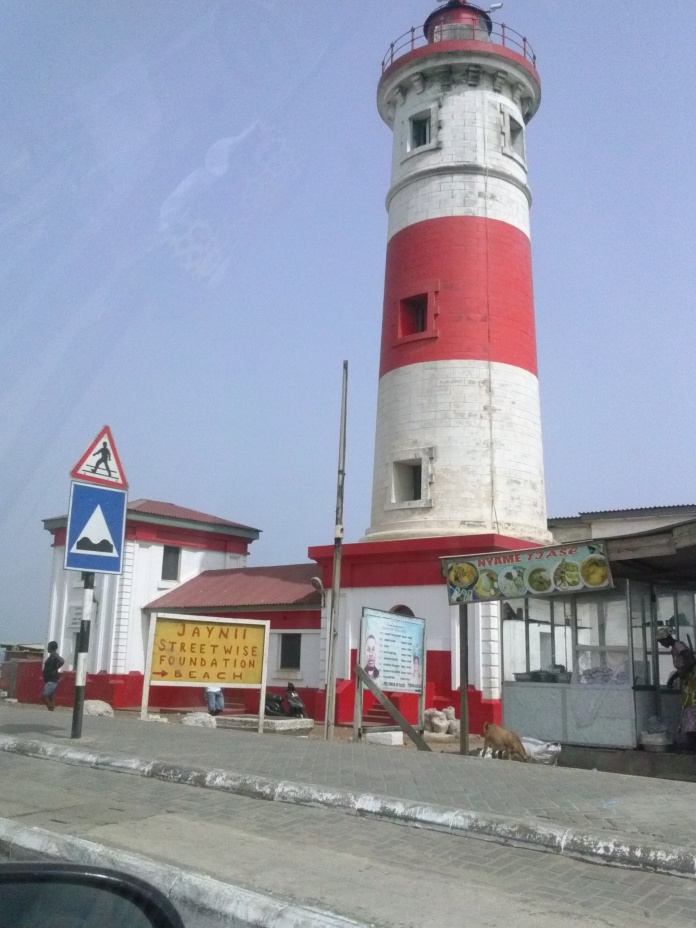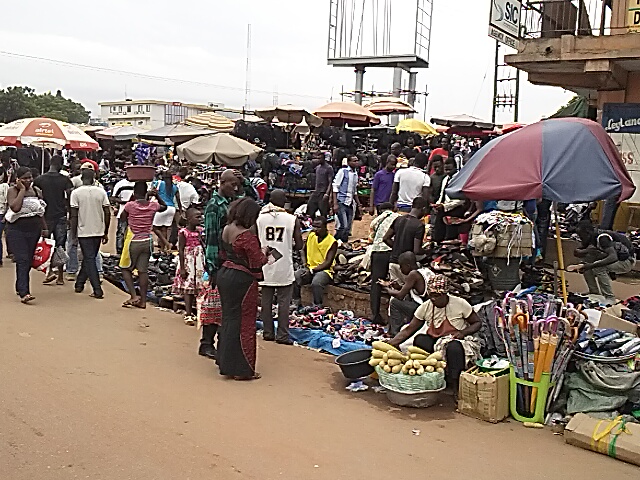My name is Dr. Adel Driss and I am a Fogarty Global Health Fellow from the University of North Carolina – Chapel Hill, Johns Hopkins University, Morehouse School of Medicine and Tulane University Consortium. This prestigious and selective program provided me an opportunity for training in global health research in a low and middle income country, which is Ghana. This 11-month-long mentored clinical research training program is sponsored by the Fogarty International Center and the National Institutes of Health (NIH) Heart, Lung and Blood Institute.
I am currently conducting an epidemiology analysis on malaria resistance at the Noguchi Memorial Institute for Medical Research at the University of Ghana, in collaboration with the Korle-bu Teaching Hospital in Accra. Before enrolling in this fellowship, I was part of the “Genomics and Hemoglobinopathies Program”, which is a NIH funded research project, focused on applying genomics methods on diseases related to hemoglobin such as sickle cell disease, thalassemia and malaria. I also taught biochemistry and genetics courses for the Morehouse School of Medicine Graduate Program and I am currently an advisor for an MPH-epidemiology student at Emory’s Prestigious Rollins School of Public Health.
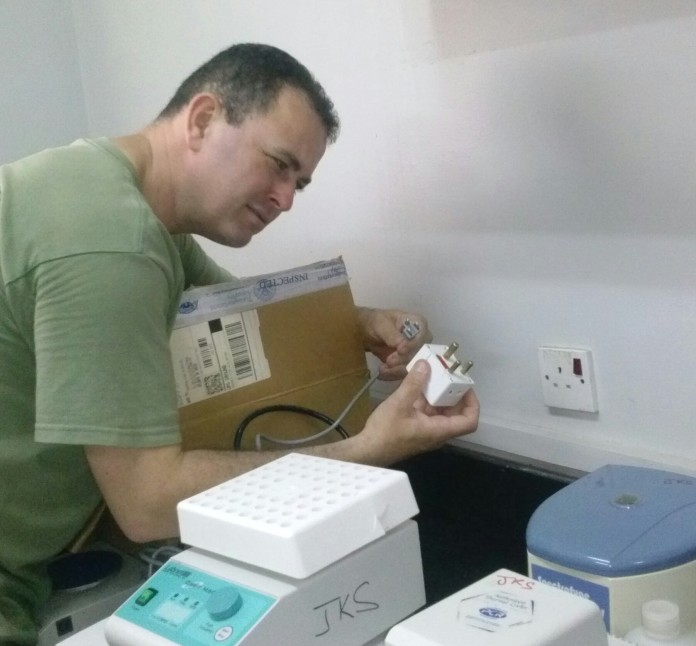 I arrived in Ghana in February 2014. It was the first time I had been in Sub-Saharan Africa. Being half African myself (Tunisian), I was sure the cultural shock would be minimal or easily dispensed. In the beginning housing was a little tricky, especially since I did not have a car. In Accra a car or a scooter is a must! However, the people I met were naturally accommodating. I was so happy to find that it is extremely easy to make friends! I have joined a running group and do some volunteer work. Also, I was welcomed here by my host institute and by everyone in the scientific and medical communities.
I arrived in Ghana in February 2014. It was the first time I had been in Sub-Saharan Africa. Being half African myself (Tunisian), I was sure the cultural shock would be minimal or easily dispensed. In the beginning housing was a little tricky, especially since I did not have a car. In Accra a car or a scooter is a must! However, the people I met were naturally accommodating. I was so happy to find that it is extremely easy to make friends! I have joined a running group and do some volunteer work. Also, I was welcomed here by my host institute and by everyone in the scientific and medical communities.
There are always several challenges in establishing an international scientific collaboration such as what I am doing. In a nutshell, I initiated a patients’ recruitment protocol to collect and process blood samples from sickle cell and malaria patients and healthy controls at Korle-Bu Teaching Hospital. In tandem, I established a basic science laboratory unit at the Noguchi Memorial Institute, about 20 miles away from the hospital (about 2 hours by car – traffic in Accra makes Atlanta rush hour seem like a motor car race! After living in Atlanta for 11 years, I never thought I would say that!). I also ensured that I had the ethical clearances and the reagents and materials accordingly organized. I implicated strategic laboratories and key collaborators to take part in the study. So far I have collected about 400 samples in these few months–which is extraordinary given the number of things I must do with each patient sample. For example, from each sample, I collect plasma, red blood cells, white blood cells, DNA, RNA, total blood filter papers stains, consent forms, detailed severity and history questionnaires, total blood count, parasite count and hemoglobin status.
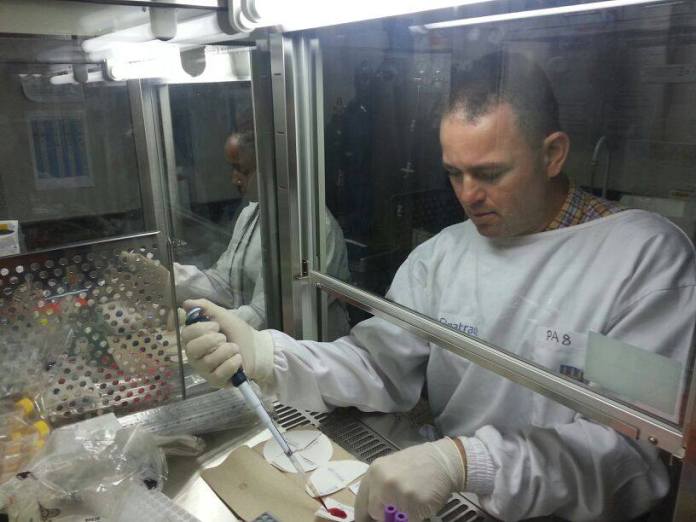 Additionally, I am also involved in the finding and characterization of serum microRNA infected with Mycrobacterium ulcerans (Buruli Ulcer) in the Ghanaian population. Buruli ulcer mainly affects the skin in mostly children under 15 years of age who live in poor rural communities. It is one of the 17 neglected tropical diseases. Patients who are not treated early suffer long-term functional disability. Along with the team I am working with, I have written and submitted a grant, and we are writing a new epidemiology article on the bacterium.
Additionally, I am also involved in the finding and characterization of serum microRNA infected with Mycrobacterium ulcerans (Buruli Ulcer) in the Ghanaian population. Buruli ulcer mainly affects the skin in mostly children under 15 years of age who live in poor rural communities. It is one of the 17 neglected tropical diseases. Patients who are not treated early suffer long-term functional disability. Along with the team I am working with, I have written and submitted a grant, and we are writing a new epidemiology article on the bacterium.
I have been extremely fortunate to have worked with fabulous teams here in Ghana. Together we have created a successful patients’ recruitment program, and we are now starting the actual molecular screening of genetic variations in that population. I could not do this without the assistance of Ghanaian people. There is such a potential to discover and to help. It really is worth the collaboration. Leadership, diplomacy and scientific integrity are key ingredients for the success of this mission and with the modest resources that I had, I was able manage it accordingly.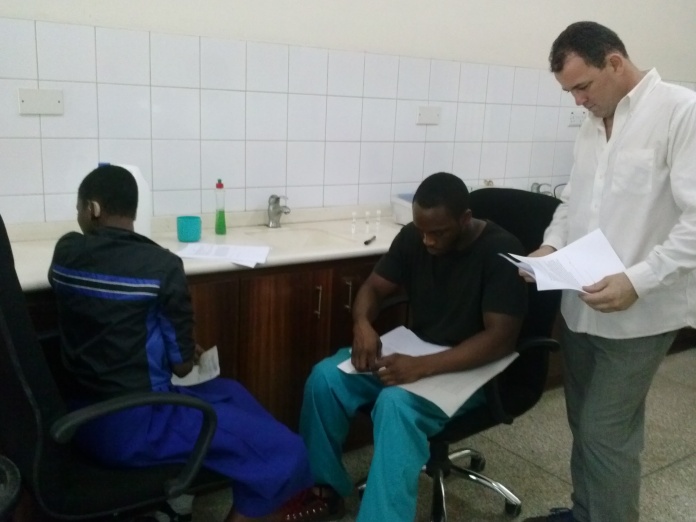
This has been a wonderful experience. I feel that I accomplished something much more important than just a fellowship. I feel proud of all my friends and colleagues here. I would definitely recommend anyone to explore all that Africa—especially Ghana—has to offer. Fogarty Global Health Fellowship Program has several mentored programs in several African and low/middle income countries. If you have a chance, DO IT!!
With all this, I am also remotely volunteering with The Carter Center in Atlanta GA. Nowadays the world has become a village with new technologies and the internet. I have been volunteering there since 2008. I first started as a gardening volunteer and absolutely loved it. However I have since taken over the Volunteer Newsletter. I also help the Democracy Programs out with their translations as I am fluent in Arabic, French, Italian and English. I’m also learning Spanish and Croatian since I am Croatian (European Union) and Tunisian (Africa) and hopefully soon US. I would have loved to meet The Carter Center interns and staff helping out in Ghana, but they are apparently far from Accra, in remote and difficult areas of the country.
I hope that The Carter Center is able to expand its health programs into malaria or buruli ulcer eradication now that the Guinea Worm Eradication Program is winding down. Since I have formed life-long connections to the individuals here in Ghana and have immense communicable disease knowledge, I would love to help and be a part of those programs!
I am anticipating to share the multitude of knowledge that I have gleaned from the Fogarty Program with others in order to improve the welfare of those suffering from communicable diseases. A career in the Global Health Sciences will allow me to help improve the human condition. So far it has been quite difficult to find a more stable position, but I am positive that I will be able to find one soon.
Carry on and do good work!
Adel
